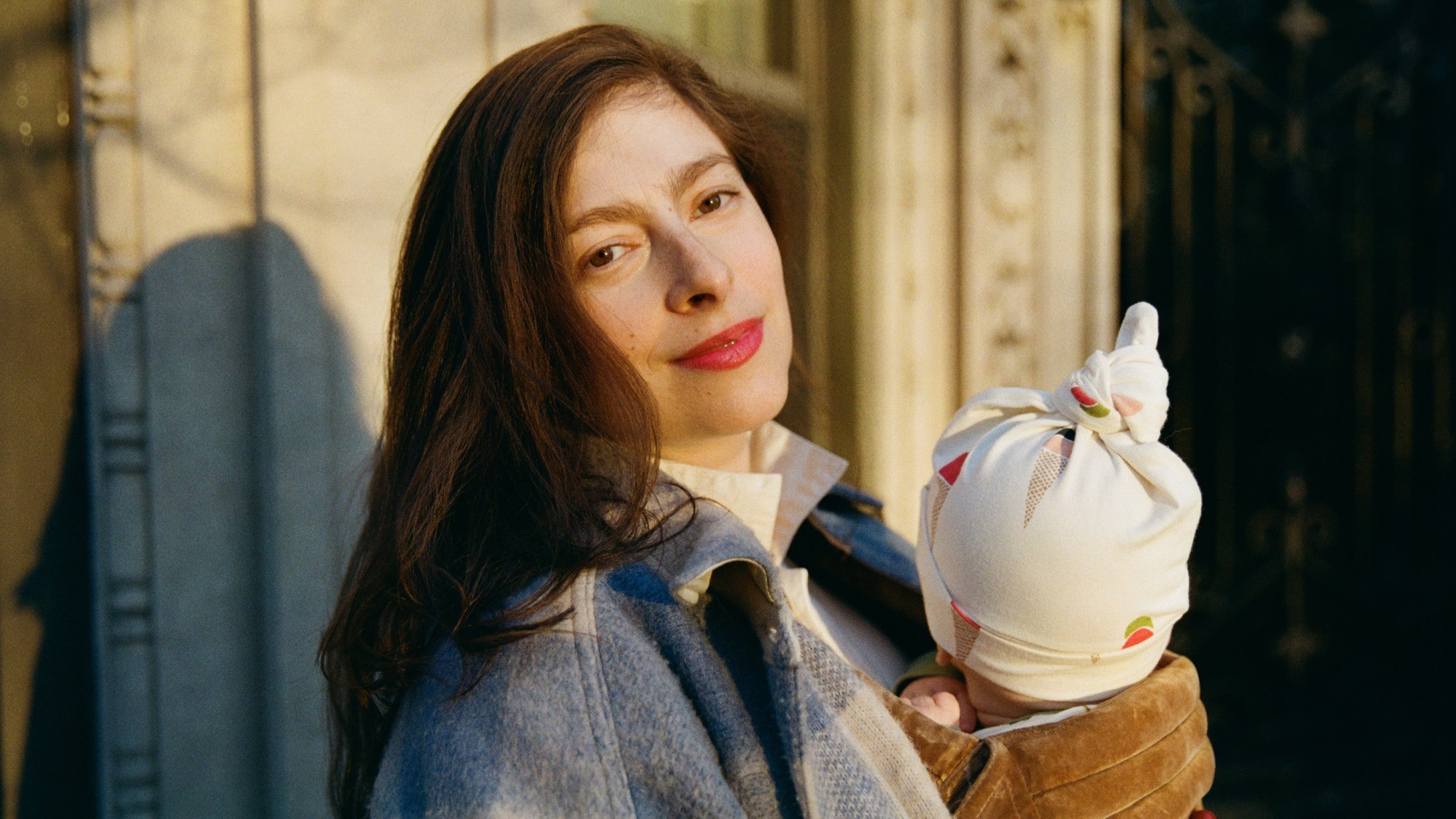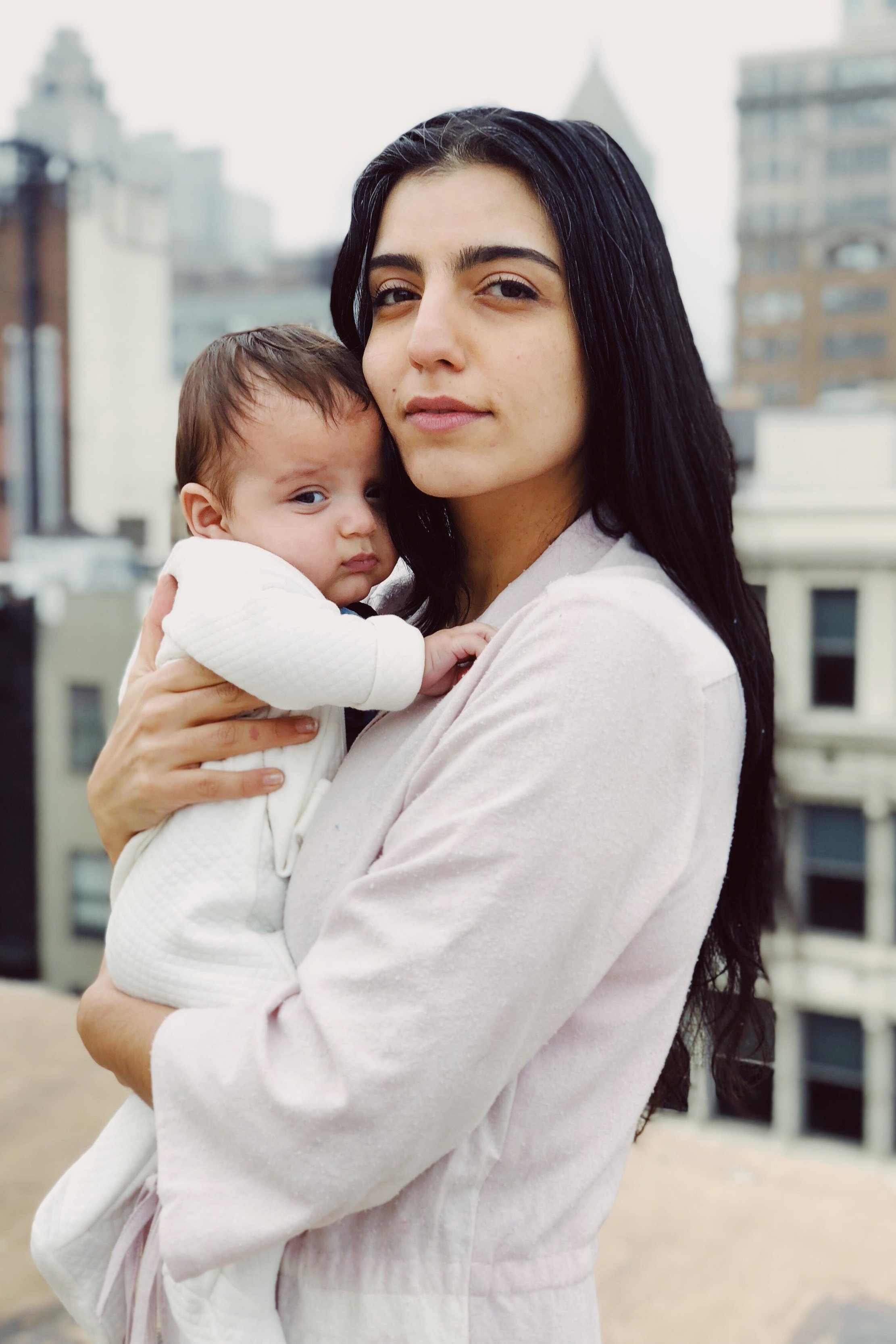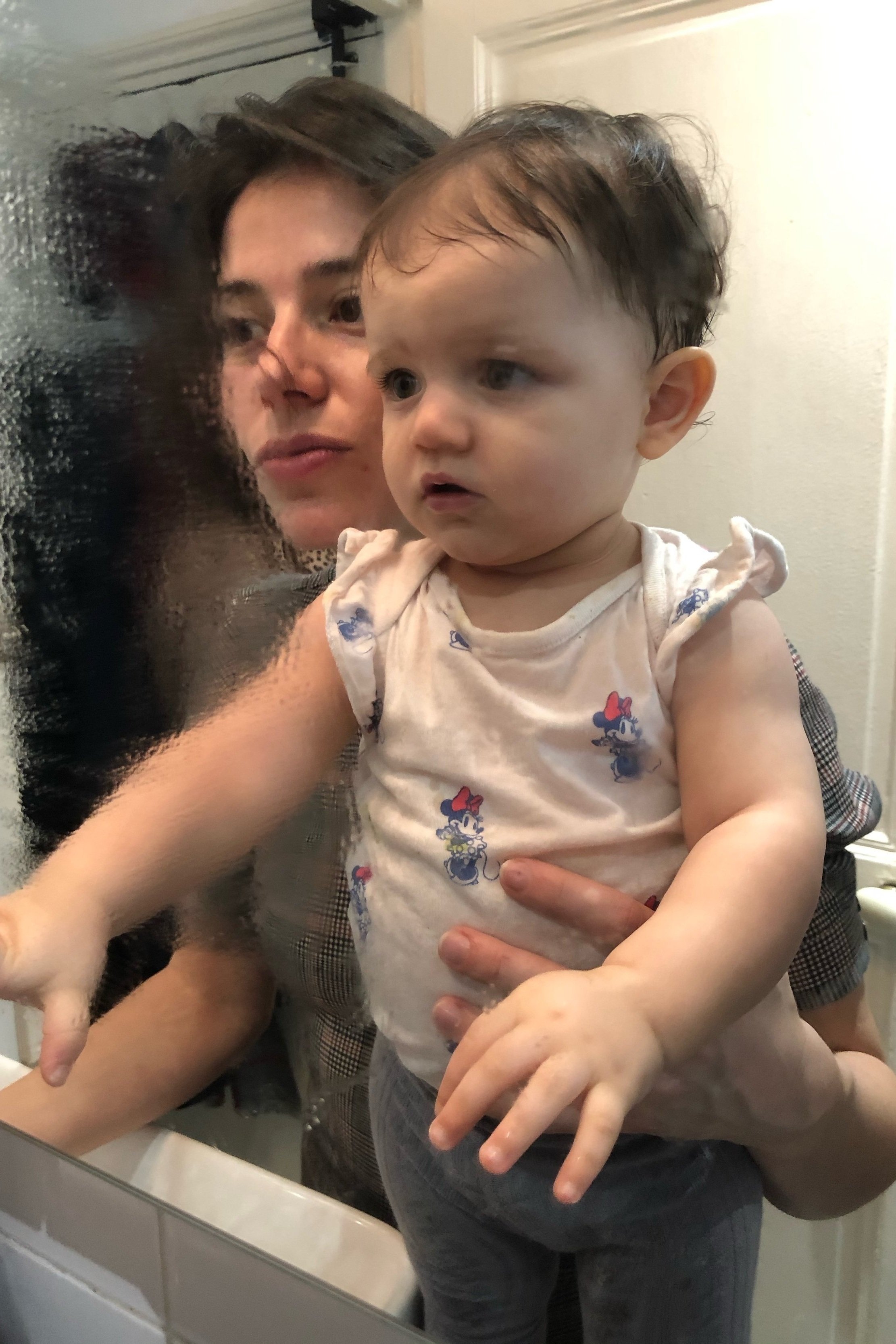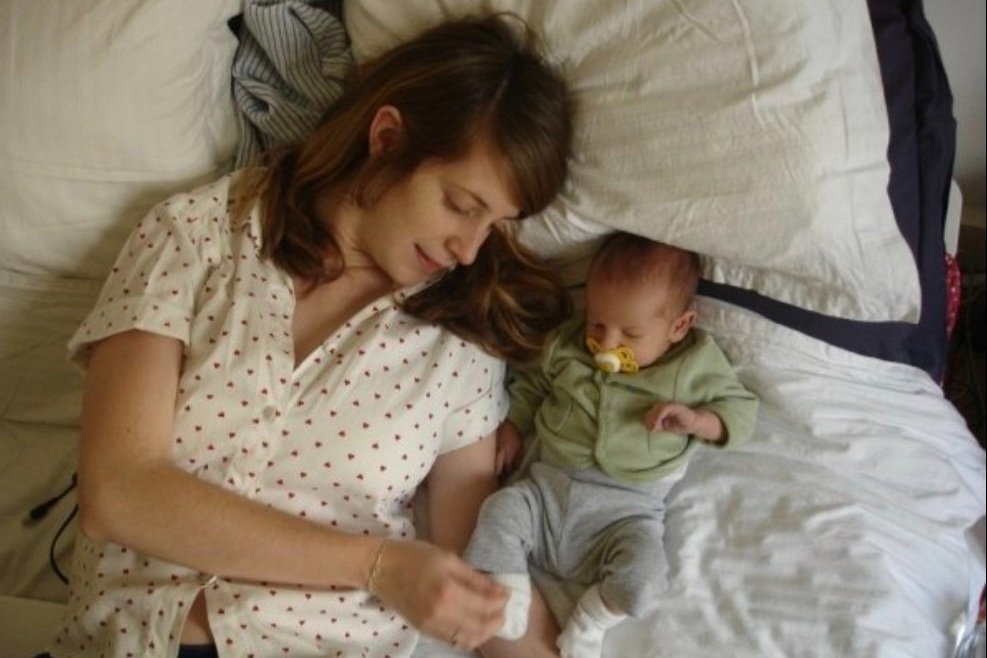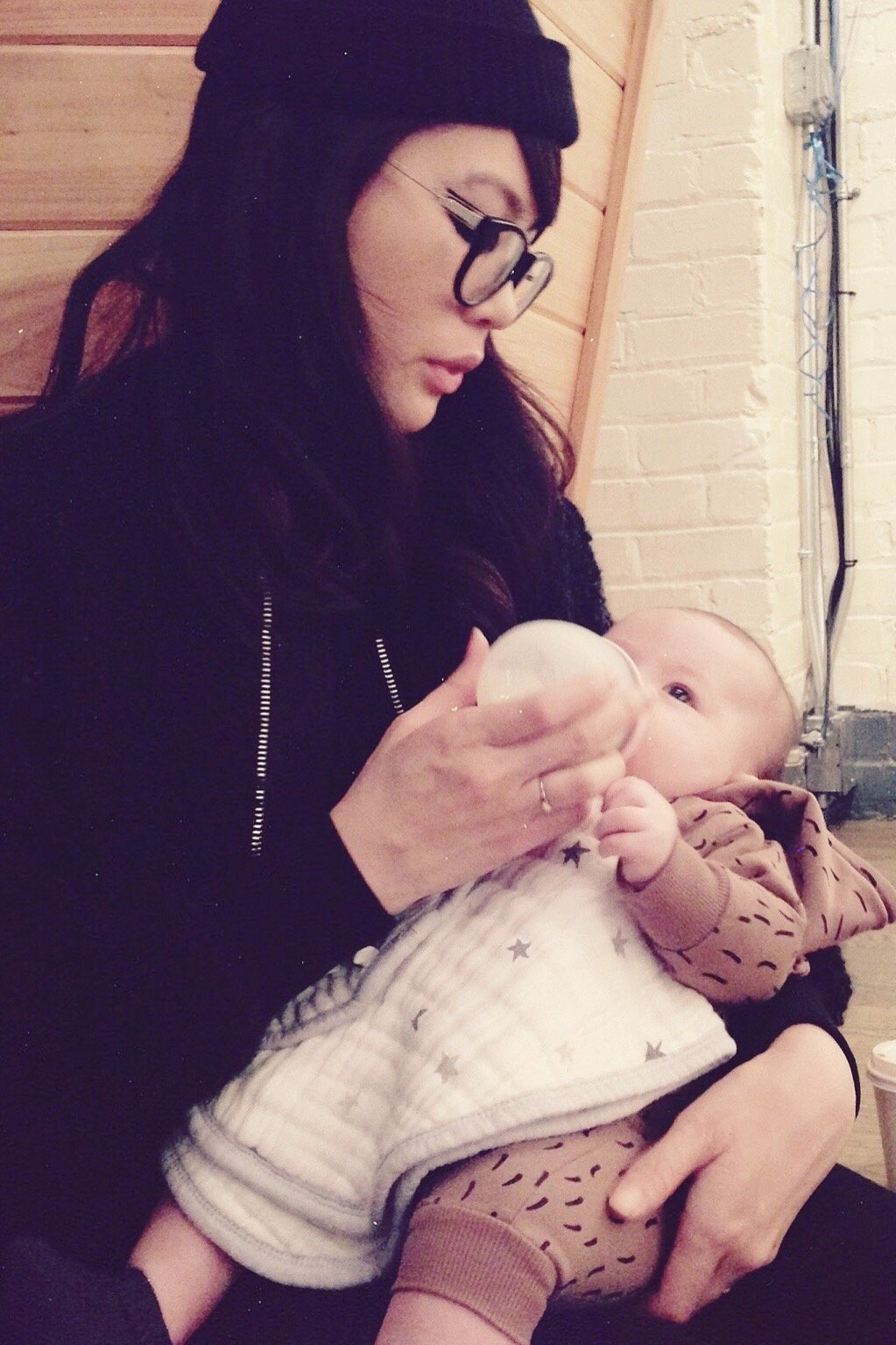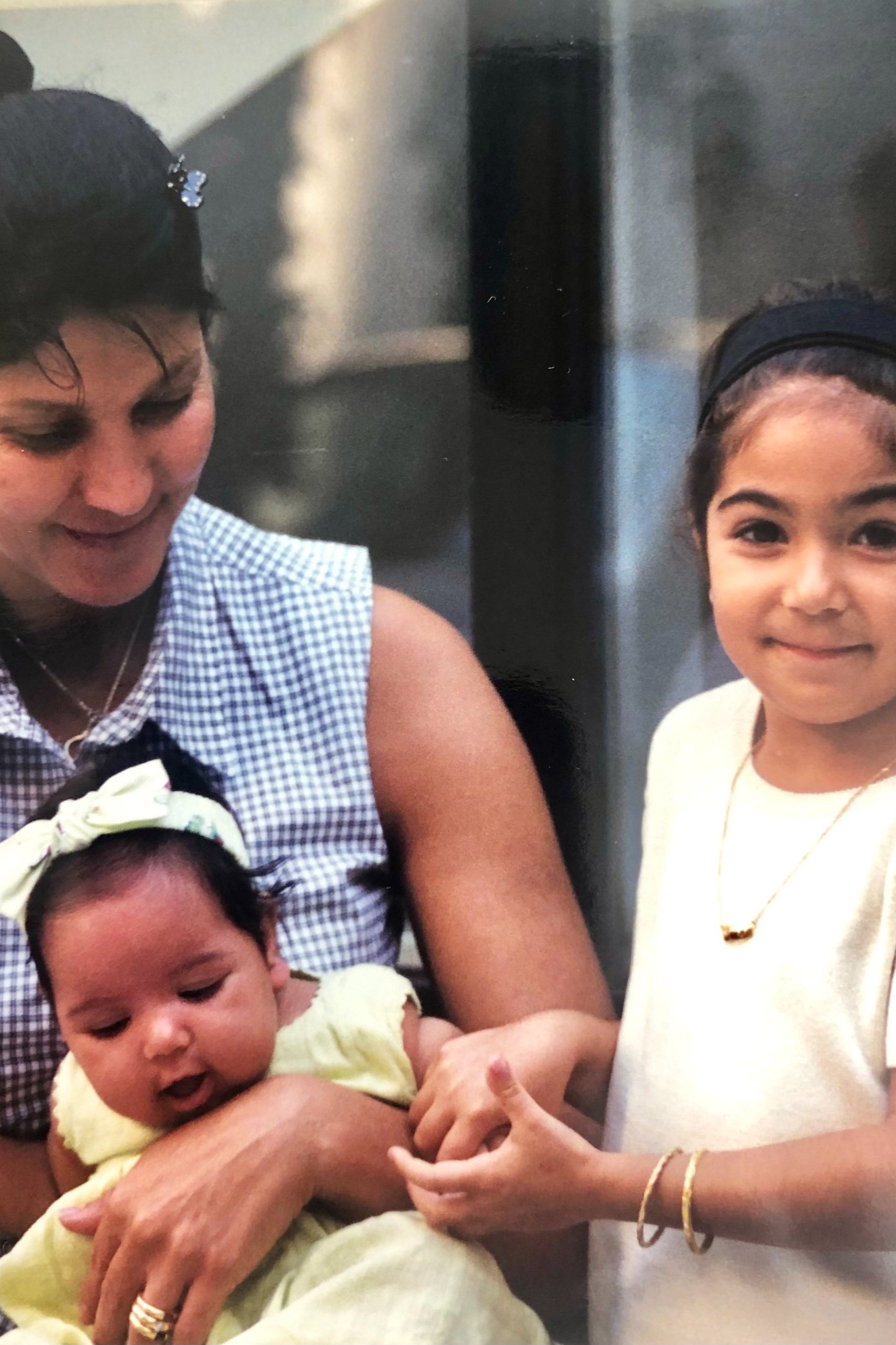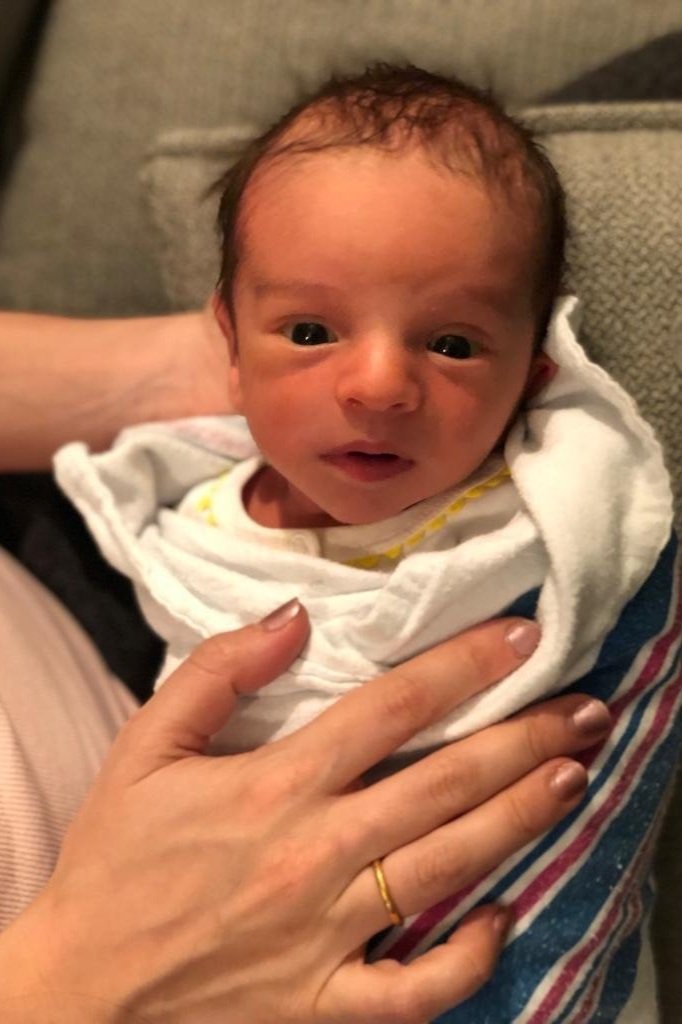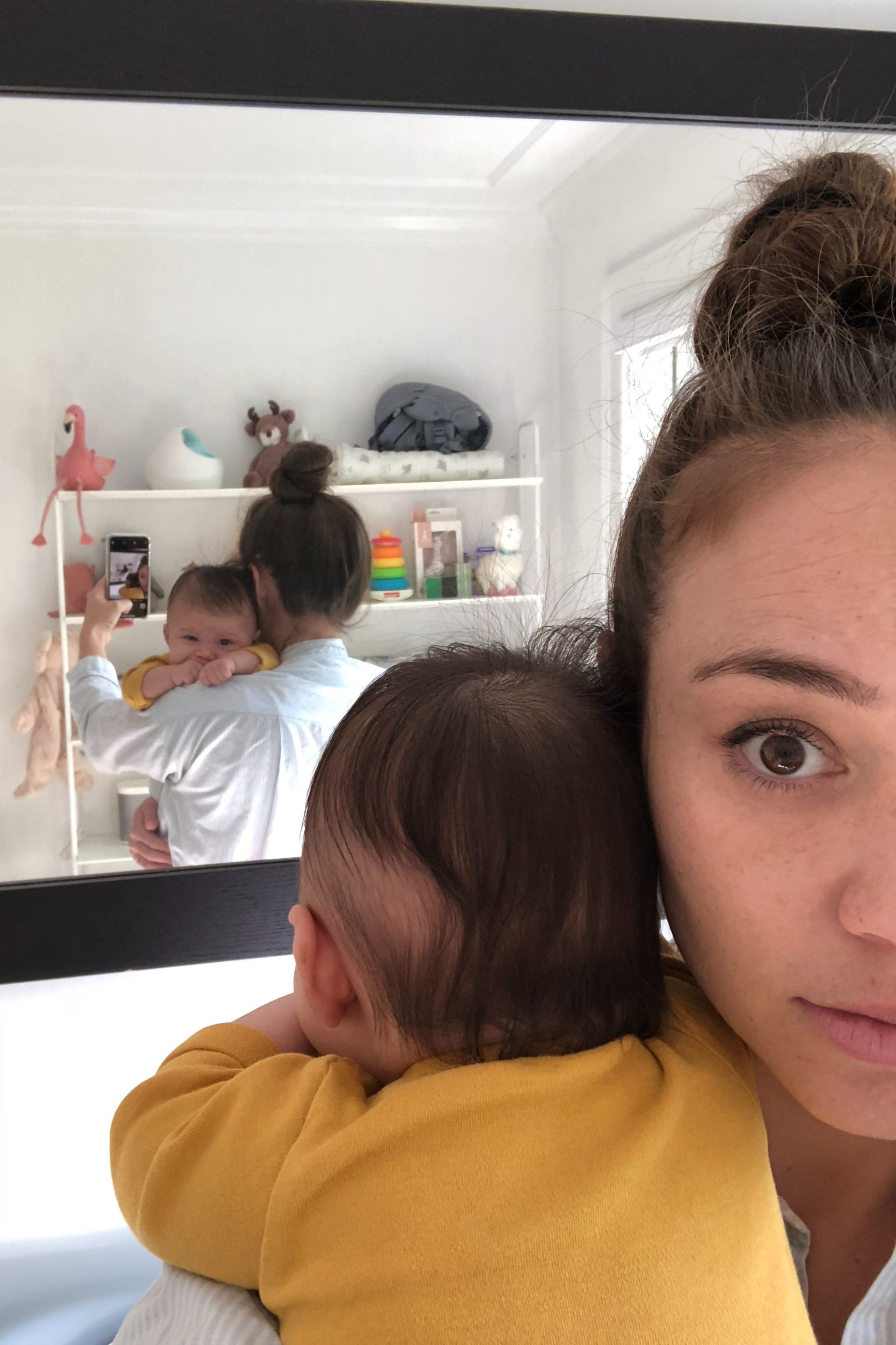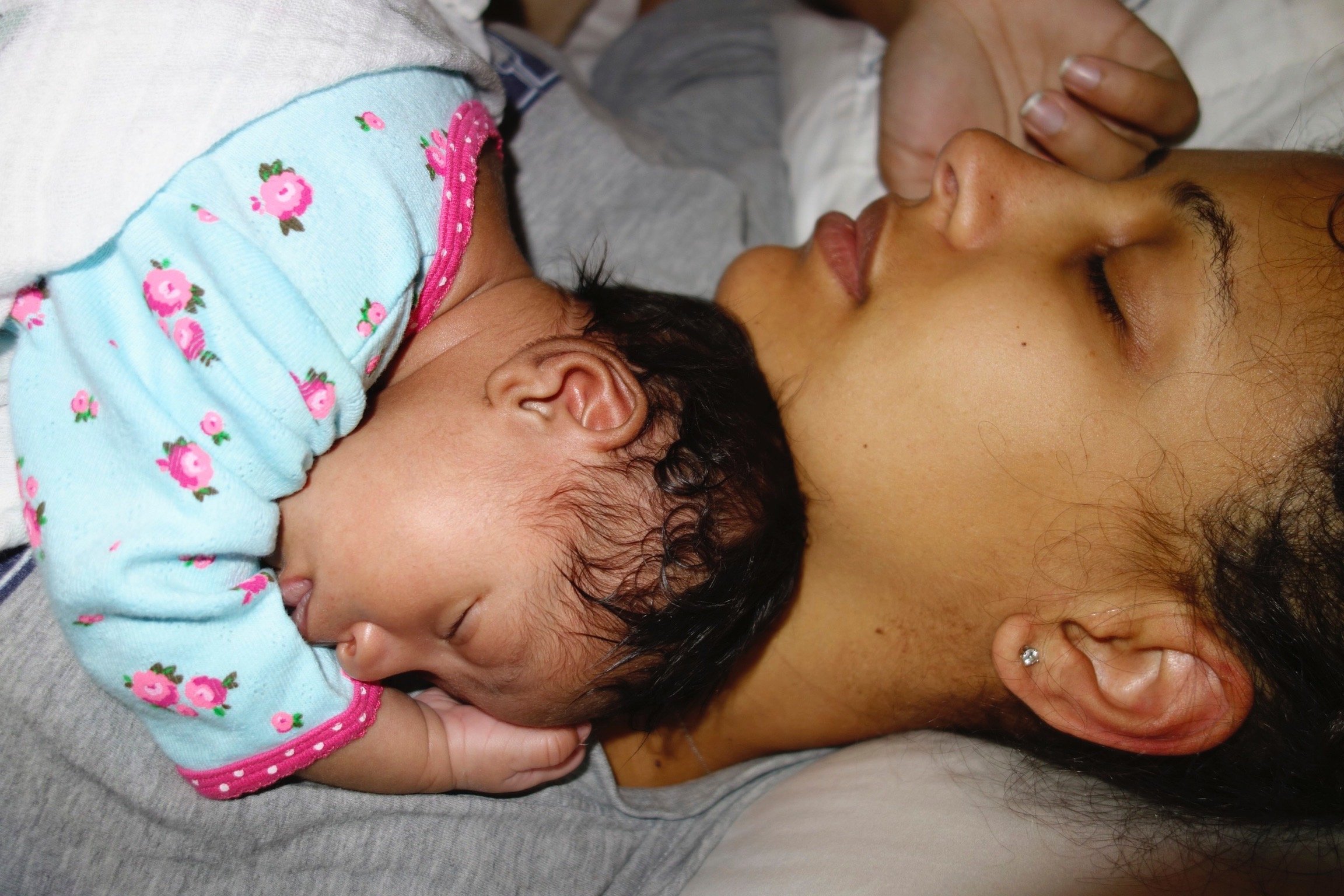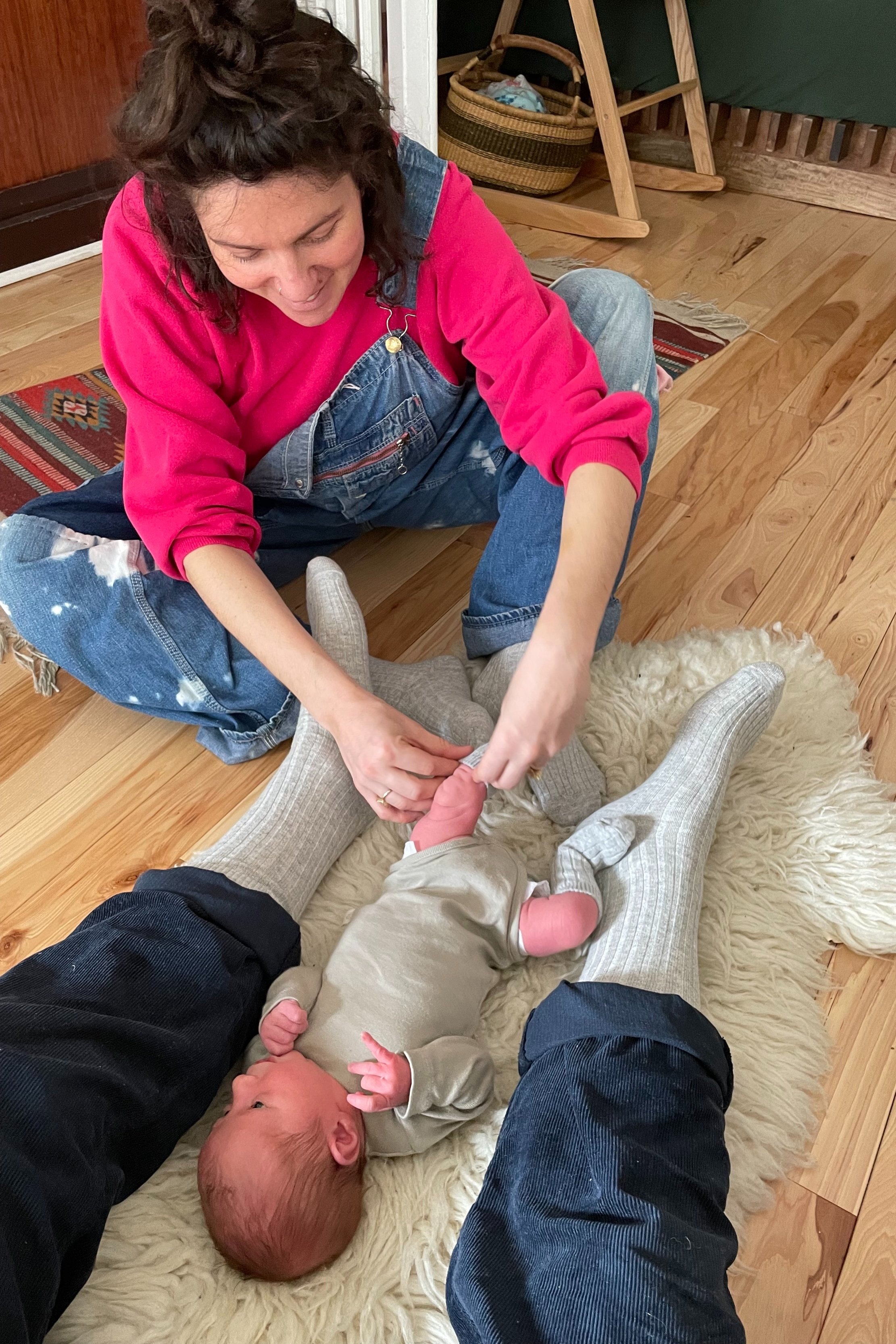Wise answers to big (and small) life questions.
Motherhood is a transformative and meaningful life experience for those who it befalls. Reflecting on the joys and challenges it brings can be a rewarding task whether you're currently considering motherhood, going child-free, or contemplating your relationship to it as the child of a mother. For those of us who feel overwhelmed and lonely navigating the art of raising humans to be good people in this world, words from mothers can provide the perspective needed to feel like others have been where we are. And for all of us, processing our thoughts can help us better understand ourselves, our parents, and our community.
Some mothers from the passerby community have babies who are a few weeks old, while others are parents to adults who now have babies of their own. We asked each of them what they wish they knew before becoming parents — here's what they have to say.
how the way we see ourselves as women can change
Seemingly overnight, it can feel like your identity has changed, and the person you've known your entire life has been replaced with someone unfamiliar. Design Director, Ly Ngo, remembers the first year of motherhood and how awkward she felt in her new skin as a mom, struggling to figure out that you "have to work harder to have all the things you want, like staying up with friends, going out, being a parent, being a lover, and being yourself." So much of your time is spent taking care of others around you, and there's just so much to do in one day so it becomes easy to no longer prioritize the person you've always been. Like everything, finding oneself in the face of new motherhood takes time and practice: "In hindsight, it was all fine, and I did not need to change to be someone's idea of a mom. I could stay being me," reflects Ly.
Camille Bertrand, a Development Executive in the film industry, recommends patience — "patience to feel back in your body, patience to learn and connect with your baby, patience and kindness toward yourself as you navigate a total revolution." It often feels like women are expected to have their babies and then get back to normal, whatever that may be, which can feel "rushed and brutal," says Camille. When feeling stretched thin, photographer Sunny Shokrae takes her thoughts back to "what can help ground and reset" — which, for her, means taking a deep breath and recognizing when she needs time to herself. Having a newborn or infant can feel fleeting, all-encompassing, and disorienting — then, "it changes just as you get the hang of [it]," remembers Sunny. "There's nothing you can do to prepare other than remember to go easy on yourself," she says.
how to rely on your community and give up control
Feeling isolated while raising children can reaffirm the need to connect with your network. "I've started letting people in," says the founder of 3rd Ritual, Jenn Tardif. "When the pandemic hit, and we were isolated from our families and friends, I felt robbed of that communal approach to parenting that I'd been promised." Predefined expectations of what life as a mother will look like extend from ideas on who ought to help raise a child to the shape of postpartum depression, which "doesn't necessarily look like it does in the movies," says Sara C. Flowers, Vice President of Education and Training at Planned Parenthood Federation of America. Jenn's experience of postpartum depression extended longer than she thought it would, but it was somewhat alleviated by her becoming more vulnerable with her friends. "Sometimes feeling seen is all you need to foster a newfound resilience," she says. Sara is both grateful to have the support and resources she needs now and wishes she had sought that help sooner, imparting the wisdom that "it is never too late!"
Camille credits her doula for guiding her through the "total loss of control that is pregnancy and parenthood." She adds, "I think being able to share experiences and talk with other parents is truly key." Publicist Erin Allweiss also leaned on her community of friends and experts to work through the feelings of becoming a mother. "I had a wonderful doula, a network of friends who had babies already [or] were having babies at the same time, a lactation consultant who takes insurance, [and] an incredible OB practice," she says. Reaching out to the smart and caring counsel around her and walking with friends in Prospect Park as much as she could always made hard times better. Storyteller and comedian Sandi Marx, who was a full-time working mom throughout her children's childhoods, remembers indulging in "the luxury of escape" and being able to "vent to other young mom buddies."
how to physically take care of your body after birth
Pregnant people might come across countless articles on how to pack a diaper bag or furnish a nursery, but the reality of what one's body needs if you physically give birth is a far less discussed topic. Ly speaks to this sentiment and wishes someone told her how to actually take care of herself and the baby. She says, "I had to learn about ice pack pads and how to do a sitz bath and take care of my poor vagina. I was in the dark ages even just seven years ago."
Cultural Producer Gaby Ron's experience echoes Ly's in the sense that she felt unprepared for all the realness: "heavy bleeding, a pregnancy belly that doesn't go away for weeks, mood swings, and all the challenges that come with the fourth trimester. It was all truly a shock for me," she says. Gaby wisely adds, "it's not about what you bring to the hospital for the birth; it's about what you take for healing before you go back home." She recommends taking the ice packs, oversized pads, and disposable underwear, which can be very helpful, particularly in the first few weeks postpartum.
For Sara, all this lack of conversation ahead of time was upsetting: "I was confused that I was having such a hard time. It didn't seem like other new parents were struggling in the same ways. I was angry about being in pain and how long it took my body to heal, angry about breastfeeding, angry about all I'd have to physically risk and endure if we wanted to have another child." It took several years for Sara to find the resources she needed, which include antidepressant/anti-anxiety medications and a therapist "who specializes in supporting parents." "This combination has been world-changing for me, and by extension, our entire family," she reflects.
that no one teaches you how hard breastfeeding is
Most of the passersby we spoke to on the topic wish they knew just how difficult breastfeeding could be. As the first of her friends to have kids, Ly learned what it means to have a "bad latch, what mastitis is, how to get good milk production [and] all these insane baby things that no one ever shared" by trial and error. Erin laments spending "so much time" during pregnancy thinking about all the "things" her baby would need without considering "the potential challenges of feeding [him] once he arrived." Her wishes come in the form of befores: wishing she'd seen her lactation consultant before delivering her baby and wishing she had assembled her breast pump before going to the hospital to avoid "frantically watching a YouTube video and trying to put together the parts in a panic."
Although Maria Geyman of Masha Tea read Ina May Gaskin's Guide to Breastfeeding and spoke to friends about the topic while pregnant, she didn't realize "how not sexy breast pumping is" and that it's normal for it "to be pretty painful at first." She felt it was hard to truly prepare "no matter how much you've read or how much advice you've gotten." When her milk supply was coming in, and she was supplementing her breastmilk with formula, Erin kept the perspective-changing words of her lactation consultant in mind: "formula is green juice; it's not Cheetos."
When your breastfeeding journey comes to an end, weaning is a beast of its own. Sara was "bowled over" when she inadvertently realized that stopping would again imbalance her hormones. "I found myself sitting on the couch feeling like a cloud was hanging over my head when my baby self-weaned cold turkey," she says. She realized that although the baby was okay with the abrupt stop, she wasn't. "I figured out that my body felt more regulated when I continued to pump [and eventually] I pumped less and less each day to help my body adjust."
that parenting is an exercise in individuality
Although everyone has an opinion (and is more than happy to share it in an unsolicited fashion) on the right and wrong way to parent, architect and professor, Gisue Hariri learned that "there is only the best way for each specific child." She wishes someone told her early on that each child "is born completely wired and perfect in their own way" and that "with unconditional love, empathy, and compassion," you can teach them the "joy of living life the way they choose to." As a young mother before the internet, Sandi read all the well-meaning baby guides, but recognizes that most of what she learned about being a successful parent "came from instinct." Sandi says, "I made plenty of mistakes, and no matter how much outside information a young mother can try and absorb, follow your heart and your pediatrician's guidance. If you love those babies hard, [with] good care and feeding, they will blossom."
For Sara, reflecting on life's changes comes with a wish that she knew her daughter would be her only baby. "I wish I treasured more snuggly little moments rather than just wanting to get through to the next stage," she says. Museum boutique manager Laura Saglio echoes that in wishing someone told her to "chill out and enjoy" because "[time] goes by so fast and even the hard parts are the best parts of life."
Sunny believes that offering recommendations about what she wishes she knew before becoming a mother is tricky because anyone reading it may not necessarily think it applies to them before becoming a parent themselves. "You'll want to think you have control, and you will do things your way, but the plot twist is that your baby will have their own personality, their own moods, [and] their own complex needs," she says. Sunny adds, "you'll never know what you'll need until it's right in front of you, and you have to step up."
Words by Tanya Kertsman

